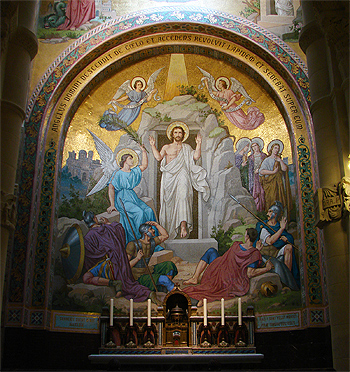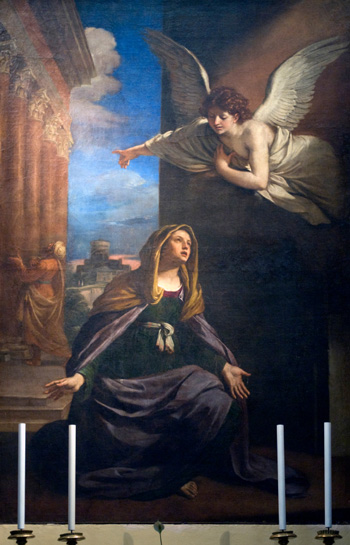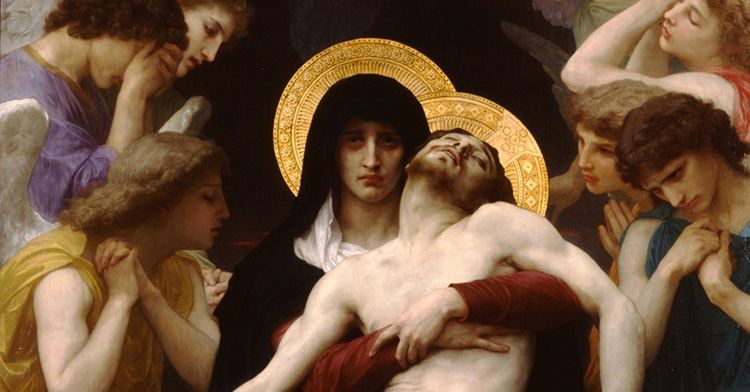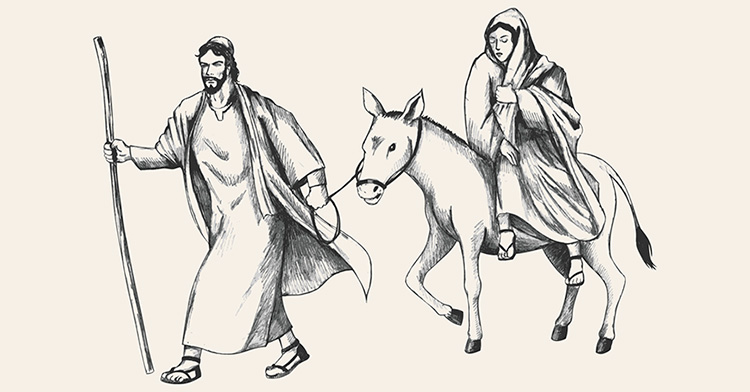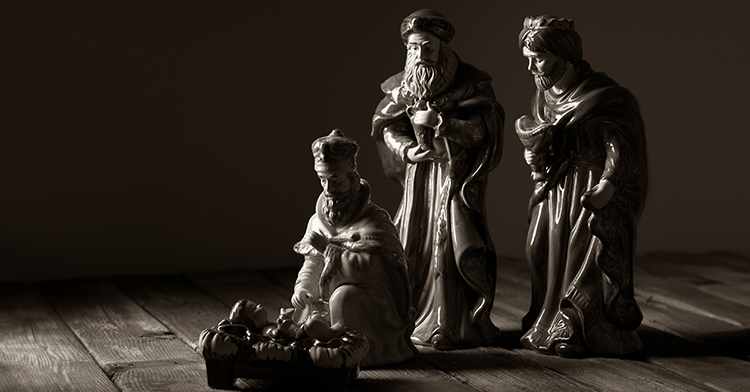In order to retain its sense as the beginning of the good news, Christmas needs Easter. Likewise, for it to retain its sense as the culmination of the good news, Easter needs Christmas.
One of the dangers of forgetting Christmas at Easter is that we tend to focus on the Passion and the Resurrection and forget that these are part of a larger story. We make Jesus’ death and resurrection, that is, into mere events that carry with them particular benefits. So, for example, the cross is thought to cleanse us from sin and the resurrection to defeat the power of death.
Of course, Christians do believe that we are cleansed from sin and that death has ultimately been defeated. But the truth is that we cannot separate the cross and the resurrection either from each other -- as if Jesus’ death had specific application apart from his resurrection -- or from the larger Gospel story that renders Jesus’ identity. They are, after all, the death and resurrection of Jesus.
Remembering Christmas at Eastertime helps us to realize the astounding manner by which God works redemption in the death and resurrection of Jesus. By thinking of Christmas, our attention is directed backward, from the end of Jesus’ life toward its beginning.
The cross is the cross of one who was once a human baby and who went through human life and died as a grown man. The resurrection is the new life that was given to this same human being. Emmanuel, God with us, is the one who was killed and raised.
Contrary to what we might initially think, then, Jesus’ death and resurrection are not the mechanisms by which God saves, the two levers, as it were, that he pulls to work our redemption. They are, instead, events that are internal to God’s own life as Emmanuel.
It is perhaps true that God could have saved us in a different way had he so chosen, but Christmas reminds us that the Passion story is a story of God’s life as a human being. Remembering the story of Emmanuel at Easter helps us to remember that the way God chose to save was a way with us -- not outside of us or over against us or without us, but with us.
Redemption, so the link between Christmas and Easter shows, was worked from the inside. The salvation we celebrate at Easter is a victory from the inside.
The difference this makes for how Easter puts Christians in the world is nothing short of dramatic.
If we are to be in the world as witnesses to God’s salvific work in Christ, knowing that God’s Easter work is done from inside the human condition puts us in the world as those who are with others as God is with us. Salvation as Christians know it is not merely the declaration to sinners that all is forgiven; it is the living out of forgiveness in the presence of sin -- the “with-ness” and work of grace in the midst of regular, sinful human life.
So, too, the victory over death is not only the claim that we shall be raised as Jesus himself was; it is also the assurance in the face of suffering that the life we begin as a baby will not ultimately amount to nothing.
The resurrection is a validation of a life that runs from infancy to death, an emphatic statement by God that he himself -- personally, within his own existence as God -- is victoriously on the side of a dying humanity.
The resurrection is known in real time as hope in the work of God against that which assails us through dying and death. The unraveling of our plans, the physiological weakness, the isolation even from our most intimate companions, the emotional devastation -- in short, all the hints that death is around us and even inside us -- do not finally mock us.
Christmas reminds us that Easter does not tell us that our bodily lives will finally be left behind or that the utter seriousness with which we regard a human life is in vain. It says instead that the life history that makes us who we are, broken as it may well be, matters to God enough to save and redeem.
Theologian Martin Kaehler once famously said that the Gospels were Passion narratives with long introductions. In a way, he was right.
The Gospels do lead to the Passion and the Resurrection. But there are profound and important reasons that we have what comes before.
Christmas reminds us that we can never think about the death or the resurrection without the human Jesus, without, that is, understanding their significance in light of God’s decision to be with us and for us as a human being. Only then will we begin to see that salvation from sin and death is a statement about the utter and final worth of human life to God.


